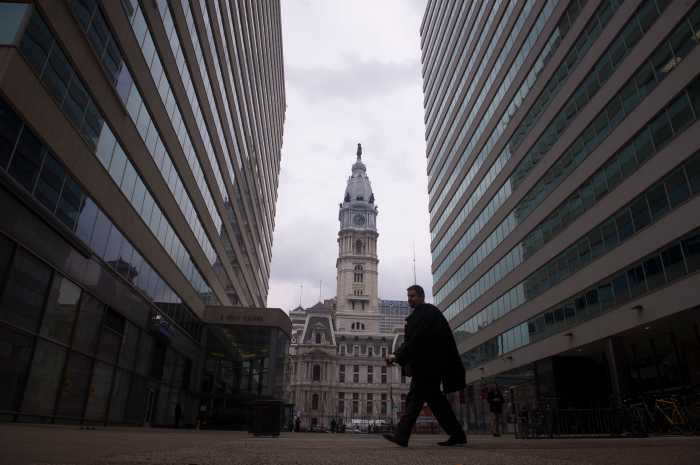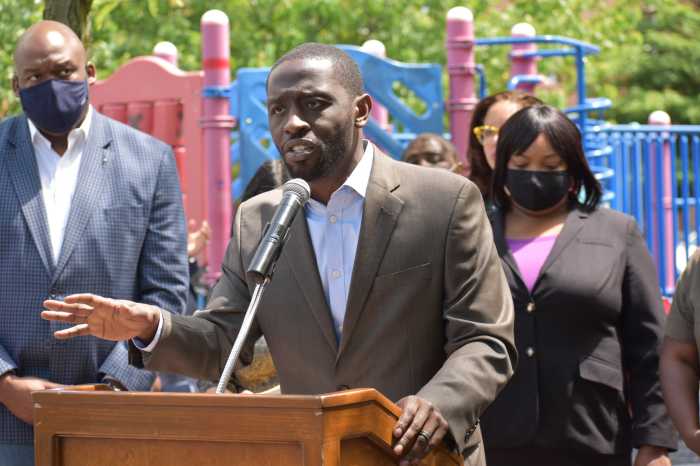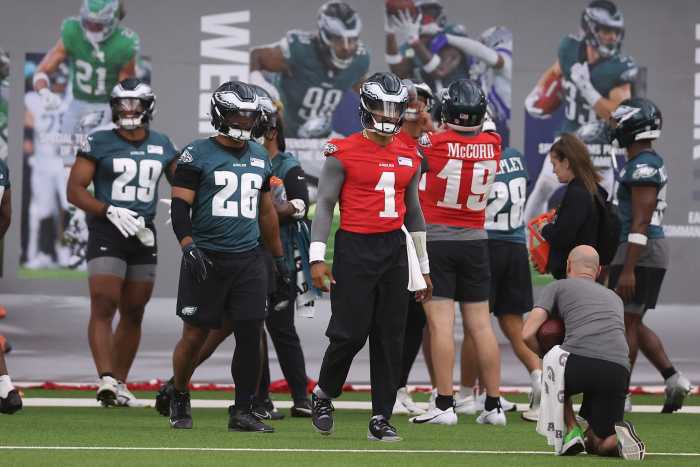Diamond Wilson was temporarily relocated to a hotel room with her two children after she was shot in the face last year in West Philadelphia.
The space was not adequate, she said, forcing her family to move back to their house and a neighborhood where Wilson said she is frequently harassed and intimidated.
“I just want to have a safe place for me and my children to live so they can survive,” said Wilson, who lost an eye in the shooting and continues to deal with pain.
Wilson was exactly the type of person City Councilmember David Oh was attempting to help when he pushed last year for an extra $500,000 to be spent to move Philadelphians who have been threatened with retaliatory violence.
Oh successfully advocated for the money after hearing from several mothers who had been repeatedly attacked. But, he said, none of those people have been helped and no one has been moved.
The issue of what happened to the half-million dollars was the subject of a Council hearing Tuesday morning.
Oh said the funding was supposed to be used to permanently relocate victims and witnesses — not to put them up in a hotel for a few weeks.
Shondell Revell, of the city’s Office of Violence Prevention, said part of the money remains with the Managing Director’s Office, where it was originally earmarked, and some went to the District Attorney’s Office, which operates a relocation program for witnesses.
He did not have the exact breakdown of how the dollars were distributed, and Mayor Jim Kenney’s office did not respond to a request for that information by the time Metro went to print Tuesday.
Philadelphia Victim Advocate Adara Combs said her office tapped into nearly $100,000 of the money to relocate victims.
However, she found that her newly formed office did not have any formal structures or processes for moving people in danger.
“Resources without strategy or proper planning or systems in place is really just throwing money at a problem with no hope of ever solving that problem,” Combs said during the virtual hearing.
She told Council that her team is in the final stages of interviewing for a dedicated relocation specialist to build out a program, so that “this money is just not sitting there or divided out haphazardly and unevenly around the city and only going to people just because they were able to potentially get the ear of an influential person.”
Councilmember Curtis Jones Jr., who chaired the meeting, said stakeholders need to meet to go through the process of what it means to relocate people in the wake of a crime and provide continual support.
Currently, the DA Office’s program moves witnesses to temporary houses to protect them as they prepare to testify in court.
During a Council hearing last week, representatives from the DAO said they receive $260,000 in annual city funding for the program, and they can also apply for a share in limited funding from the Pennsylvania Attorney General’s Office.
Another program, through the Pennsylvania Victims Compensation Assistance Program (VCAP), reimburses crime victims up to $1,000 for relocation costs.
With Philadelphia’s increasing levels of gun violence, the need for victims and witnesses to leave their homes is growing, advocates who spoke at the hearing said.
EMIR Healing Center ran a six-month relocation pilot program but had to stop offering the service after funding dried up, said Chantay Love, the organization’s president. Now, there are 36 families, representing more than 100 people, on their waiting list.
Tobi Downing, executive director of Northwest Victims Services, said relocation and housing assistance are among the most common requests her organization receives from clients.
She wants to same urgency applied to the relocation needs of domestic violence survivors and those fleeing human trafficking to those at risk of being intimidated because of ongoing gun violence.
Love argued that government-led efforts do not work because of strict regulations and red tape; instead, she said, lawmakers should fund community organizations to quickly relocate victims.
“We do not need another department developed in the city to try to do this type of work,” she added.

Metro is one of more than 20 news organizations producing Broke in Philly, a collaborative reporting project on economic mobility. Read more at brokeinphilly.org or follow on Twitter at @BrokeInPhilly.































